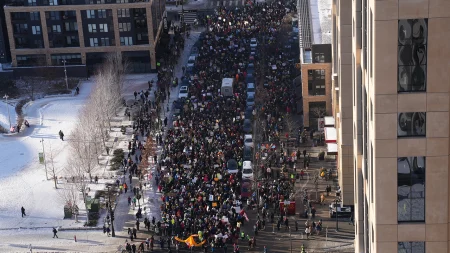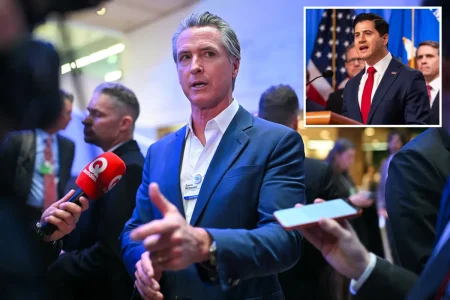Quebec’s COVID Crisis: Where Public Health Policy and Politics Collide
A Province Under Pressure: Examining Quebec’s Outsized COVID-19 Burden
The late afternoon sun casts long shadows across Montreal’s usually bustling streets, now eerily quiet under the weight of pandemic restrictions. Quebec, Canada’s second-most populous province, has emerged as the epicenter of the country’s COVID-19 crisis, accounting for a disproportionate share of cases that has left public health officials scrambling and politicians defending increasingly controversial measures. The province’s struggle represents more than just a public health emergency—it has evolved into a complex intersection of science, politics, cultural factors, and governance that offers valuable insights into pandemic management on a broader scale.
The numbers tell a stark story: while Quebec represents approximately 22% of Canada’s population, it has consistently accounted for nearly 40% of the nation’s coronavirus cases and fatalities. This outsized burden has raised difficult questions about the province’s initial response, its healthcare infrastructure, and the unique demographic and social factors that may have contributed to its vulnerability. “What we’re witnessing in Quebec isn’t simply a matter of bad luck or timing,” explains Dr. Marie Leblanc, an epidemiologist at McGill University’s School of Public Health. “The province’s experience reflects a perfect storm of structural, demographic, and decision-making factors that converged at precisely the wrong moment.” Among these factors, the province’s early spring break—which sent thousands of families traveling internationally just before border restrictions were implemented—has been cited as a critical catalyst for early community spread that subsequently proved difficult to contain.
Political Divisions Deepen as Public Health Measures Intensify
As case numbers have surged, Premier François Legault’s Coalition Avenir Québec government has implemented increasingly stringent public health measures, including some of North America’s strictest lockdowns, extended school closures, and controversial curfews that have sharply divided public opinion. These decisions have transformed what began as a unified emergency response into an increasingly politicized battlefield where public health recommendations collide with economic concerns, personal freedoms, and partisan positioning. Opposition parties have seized on perceived inconsistencies in the government’s approach, with Liberal Party leader Dominique Anglade criticizing what she calls “a pattern of reactive rather than proactive decision-making,” while Québec Solidaire has focused on what they describe as insufficient protections for vulnerable workers in essential services.
The political dimension of Quebec’s COVID response has been further complicated by the province’s unique status within Canada and its distinct approach to federalism. When Prime Minister Justin Trudeau’s federal government has attempted to establish national standards or guidelines, Quebec officials have frequently insisted on maintaining their autonomy in healthcare matters—a position deeply rooted in the province’s historical relationship with the rest of Canada. “There’s a fundamental tension at play,” notes Dr. Jean Beauchamp, professor of political science at Université de Montréal. “Quebec has long defended its jurisdiction over health policy, but a pandemic inherently challenges provincial boundaries and calls for coordinated responses. This creates natural friction points between different levels of government, each with their own political imperatives.” This tension became particularly evident during debates over the federal COVID Alert app, which Quebec initially resisted adopting despite federal endorsement, and in disagreements over international border controls that the province argued were implemented too slowly.
Behind the Numbers: Vulnerable Communities and Systemic Challenges
The human toll behind Quebec’s statistics reveals troubling disparities that have become impossible to ignore. The province’s long-term care facilities (CHSLDs) were devastated during the pandemic’s first wave, with heartbreaking accounts of understaffing, inadequate protective equipment, and preventable deaths that prompted a public reckoning with long-standing underfunding of elder care. Similarly, Montreal’s densely populated, lower-income neighborhoods have experienced infection rates significantly higher than affluent areas, highlighting socioeconomic factors that influence transmission risk and access to healthcare. “The virus may not discriminate, but our society certainly does,” observes community advocate Sophia Rodriguez, who works with vulnerable populations in Montreal-Nord, one of the hardest-hit areas. “People living in crowded housing who can’t work from home and who rely on public transportation face exponentially higher risks. These aren’t just public health issues—they’re social justice issues.”
Healthcare workers have found themselves caught in the crossfire between political decisions and clinical realities. Dr. Robert Trudeau, an emergency physician at a major Montreal hospital who requested his real name be withheld, describes the strain: “We’re making impossible choices daily while watching political leaders debate policies that sometimes seem disconnected from what we’re experiencing on the ground.” Nursing unions have been particularly vocal, with the Fédération interprofessionnelle de la santé du Québec documenting alarming rates of burnout, staff shortages exacerbated by illness and quarantine requirements, and concerns about workplace safety that have led to demonstrations despite pandemic restrictions. These frontline experiences have increasingly informed public debate about the government’s handling of the crisis, creating a feedback loop between healthcare realities and political discourse that has sometimes led to policy adjustments—though critics argue these changes have too often come reactively rather than proactively.
Lessons from Quebec: What Other Jurisdictions Can Learn
Public health experts studying Quebec’s experience have identified several key lessons with broader implications. First, the critical importance of protecting vulnerable populations from the pandemic’s earliest stages—a principle that Quebec initially failed to implement effectively in long-term care settings but later addressed with more comprehensive protocols. Second, the challenge of maintaining public compliance with restrictions over extended periods, particularly in a society that values individual freedoms and social connection. “Public health measures are only as effective as public adherence to them,” explains behavioral scientist Dr. Emmanuelle Rousseau of Université Laval. “Quebec’s experience demonstrates how crucial clear, consistent communication is in maintaining public trust and cooperation—and how quickly that trust can erode when messaging seems contradictory or politically motivated.”
Perhaps most significantly, Quebec’s COVID experience has illuminated the complex interplay between science and politics during public health emergencies. While the province established scientific advisory bodies to guide decision-making, the relationship between expert recommendations and government actions hasn’t always been transparent, leading to public confusion about which measures are scientifically necessary versus politically expedient. This tension reached its apex during debates over school reopenings, economic restrictions affecting small businesses, and the implementation of the controversial vaccine passport system—each decision involving scientific considerations but ultimately requiring political judgment about acceptable risks and benefits. As vaccination campaigns progress and the province cautiously moves toward post-pandemic recovery, the lessons from this unprecedented collision of public health policy and politics will likely inform Quebec’s approach to future health crises while offering valuable insights for other jurisdictions navigating similar challenges. What remains clear is that effective pandemic response requires not only sound epidemiological strategy but also political leadership that can build and maintain public trust through transparent, evidence-based decision-making that acknowledges both scientific realities and legitimate societal concerns.







